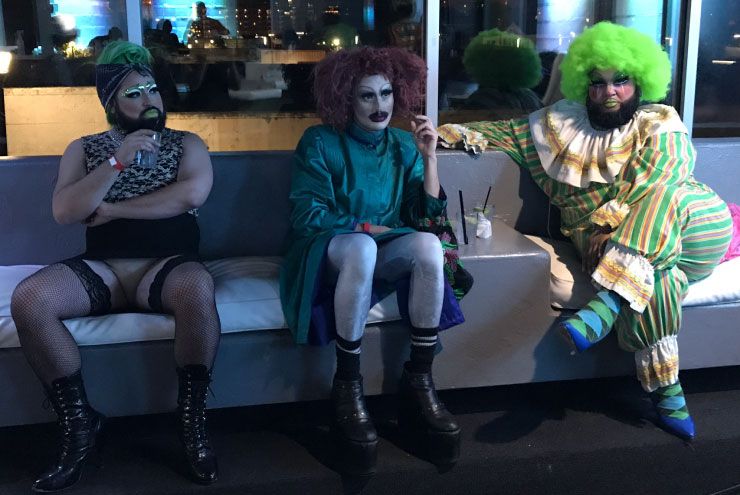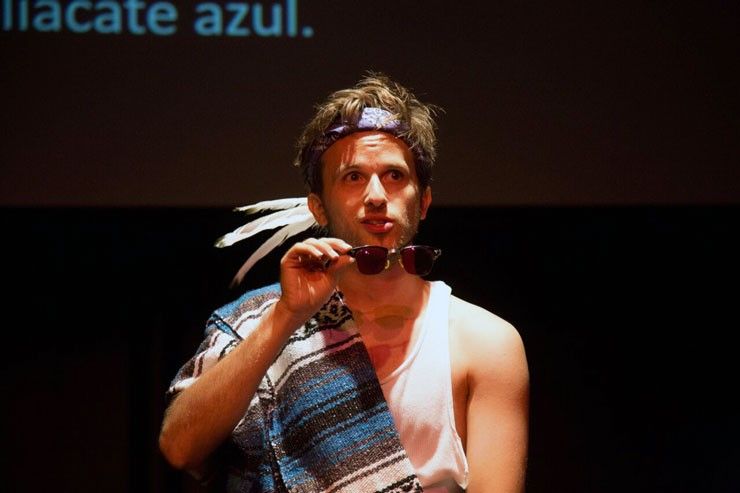By Josh Watkins
Tattoos. From metropolises like New York and Los Angeles to small town Texas, this art form has always welcomed the most marginalized in society. Spectrum South recently caught up with Jess Swaim, a nonbinary tattoo artist based out of Conroe, Texas, to talk about their experience tattooing LGBTQ clients, navigating a male-dominated industry, and queer parenting in the small town about an hour north of Houston.
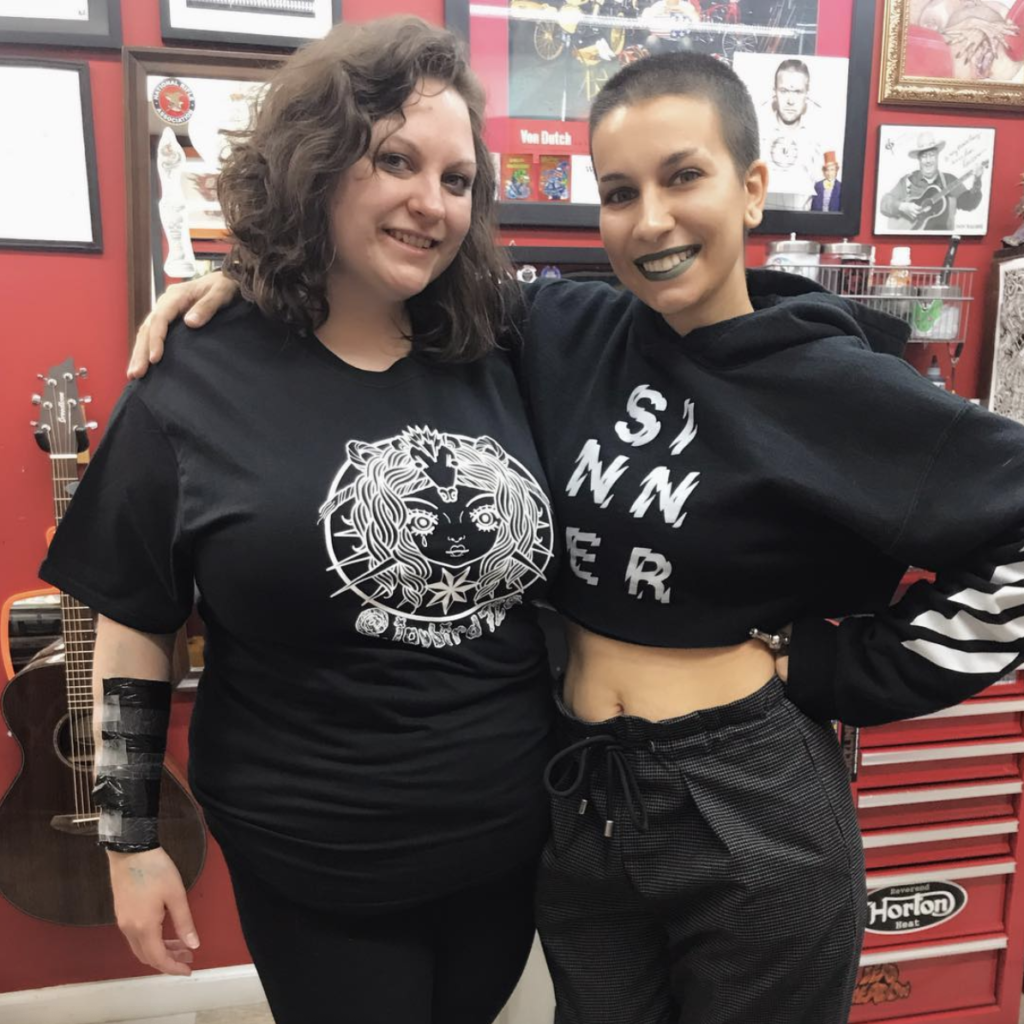
Jess Swaim (r) has worked at Eye for an Eye Tattoo Parlor in Conroe, Texas, for nearly six years.
Swaim has worked at Eye for an Eye Tattoo Parlor for nearly six years, and their entrance into the industry can only be described as meant to be. Swaim has always been interested in art and drawing, so when Eye for an Eye first opened, they were intrigued. Swaim inquired about an apprenticeship at the parlor, showed them their portfolio, and was pleasantly surprised by their response. “I showed them my work and they said, ‘You should do this!’ and I’m like, ‘Yeah, I should!’”
Swaim’s personal journey with gender and queerness started soon after they began tattooing. After tattooing and talking to several of their queer and trans clients, Swaim began to feel safer exploring their own gender identity, a desire they had long suppressed. “I always knew something was up, but I never felt comfortable going there,” Swaim says. “So meeting and talking to people living that way in Conroe opened me up to start exploring and figuring it out. It’s definitely interesting doing it in a small town, and I work with two very old, salty tattooers, but they’re like, ‘Cool. Do your thing.’”
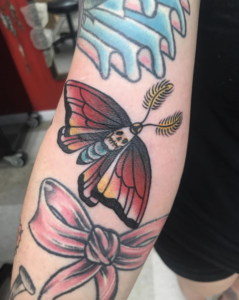
Jess Swaim prides themselves on being a tattooer for everyone.
Swaim prides themselves on being a tattooer for everyone and loves the opportunity to get to meet and interact with so many different types of people—even clients whose beliefs they drastically disagree with. “[This client who was a white supremacist] told me about being in a militia in the ‘80s and being on the edge of a race war,” Swaim recalls. “So I told him about me being Native American and queer, and it was just very surreal for the two of us to have a polite conversation. He was more respectful to me than most of the male clients I’ve had. I like to think that I was able to open up his mind and have him think a little differently. I think the simple fact that I was willing to have a conversation with him really allowed us both to open up. He actually told me he was trying to give a lot of it up for his kids. I’ve never had a conversation with someone so overtly racist who was also so open to change.”
Swaim explains that their tattoo work and identity constantly intersect. “I really love to draw the human form and people [in a way] that you can’t tell if it’s a guy or a girl,” they say. “Sharing my artwork and tattooing has helped me to open up about my identity and to expose this idea to people who don’t get to see it in their daily life. It’s helped me find a really fun community.”
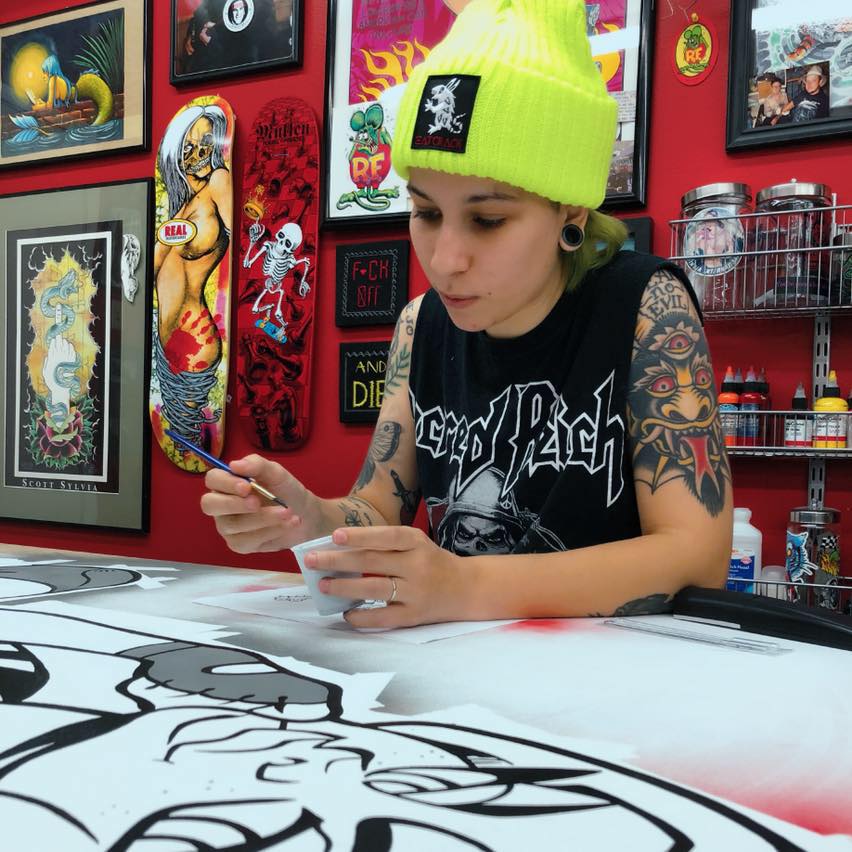
“It’s always interesting seeing how some people have to get comfortable with me. Like, if they want work done, they have to get over that hurdle. I think it opens a lot of minds that are initially closed off.” -Jess Swaim
While the tattoo industry is inherently supportive of their identity, Swaim admits that it’s often a different story in Conroe. Being a trans person who was assigned female at birth in a career traditionally dominated by male tattoo artists can often be challenging for them. “At first, people might see me and think, ‘Oh, that’s a freak,’ but, at the same time, I think my work speaks for itself,” Swaim says. “It’s always interesting seeing how some people have to get comfortable with me. Like, if they want work done, they have to get over that hurdle. I think it opens a lot of minds that are initially closed off.”
Swaim, who is married and a parent, also incorporates their queerness into their parenting style. They describe how allowing their daughter to “be very free, do her own thing, and call herself what she wants,” ultimately makes her a happier and more confident kid. “I take a lot of crap for my parenting,” Swaim says. “But my queerness and career as a tattoo artist affect a lot—mostly the way that I talk to my daughter. It makes me more mindful of the things that I say to her. It makes me really drill acceptance into her head and [the notion that] just because something is different, doesn’t mean it’s scary.”
When asked why they continue to call Conroe home, Swaim says they’re hopeful that change is slowly coming to their town. “I have my sights set on Conroe,” they say. “It’s growing and it’s ripe for change. I’m at a good point in my career here, and I’d like to get into activism within Conroe. I’d love to establish a space for anyone who feels alone or doesn’t feel safe out here, [a space where we can] just connect and be there for each other.”



